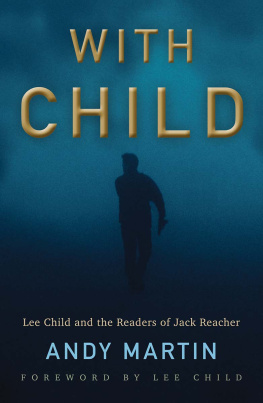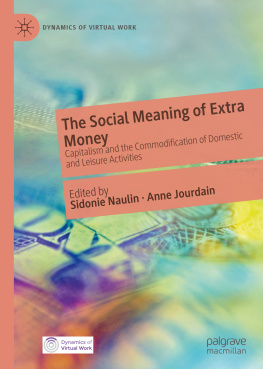YOUR CHILD
TODAY AND TOMORROW
YOUR CHILD
TODAY AND TOMORROW
SOME PROBLEMS FOR PARENTS CONCERNING
PUNISHMENT REASONING LIES IDEALS AND AMBITIONS FEAR WORK AND PLAY IMAGINATION SOCIAL ACTIVITIES OBEDIENCE ADOLESCENCE WILL HEREDITY
By
SIDONIE MATZNER GRUENBERG
Second Revised Edition Enlarged
WITH A FORWARD BY BISHOP JOHN H. VINCENT
Chancellor of Chautauqua Institution
WITH 12 ILLUSTRATIONS
1912, 1913, 1920
TO HER WHOSE DEVOTION AND UNTIRING EFFORT TOWARD AN INTELLIGENT UNDERSTANDING OF HER CHILDREN HAVE EVER BEEN AN INSPIRATION,
MY MOTHER
AND
TO MY CHILDREN
WHOSE CONTRIBUTION TOWARD MY EDUCATION HAS BEEN GREATER THAN THAT FROM ANY OTHER SOURCE, THIS LITTLE BOOK IS AFFECTIONATELY DEDICATED.
PREFACE TO SECOND EDITION
In the sad years that have intervened since this book was published, we have all been impressed by the brilliant achievements of science in every department of practical life. But whereas the application of chemistry and electricity and biology might, perhaps, be safely left to the specialists, it seems to me that in a democracy it is essential for every single person to have a practical understanding of the workings of his own mind, and of his neighbor's. The understanding of human nature should not be left entirely in the hands of the specialistsit concerns all of us.
There is no better way for beginning the study of human nature than by following the unfolding of a spirit as it takes place before us in the growth of a child. I am humbly grateful of the assurances received from many quarters that these chapters have aided many parents and teachers in such study.
In the present edition I have made a number of slight changes to harmonize the reading with the results of later scientific studies; there is a new list of references and some new material in the chapter on sex education; and there is a new chapter suggesting the connection between the new psychology and the democratic ideals of human relations.
SIDONIE MATZNER GRUENBERG.
March, 1920.
PREFACE
In my efforts to learn something about the nature of the child, as a member of child-study groups, and in my own studies, I have found a large mass of materialaccumulated by investigators into the psychology and the biology of childhoodwhich could be of great practical use to all concerned with the bringing up of children. In this little book I have tried to present some of this material in a form that will make it available for those who lack the time, or the special training or the opportunity to work it out for themselves. It has been my chief aim to show that a proper understanding of and sympathy with the various stages through which the child normally passes will do much toward making not only the child happier, but the task of the parents pleasanter. I am convinced that our failure to understand the workings of the child's mind is responsible for much of the friction between parents and children. We cannot expect the children, with their limited experience and their undeveloped intellect, to understand us; if we are to have harmony, intimacy and cooperation, these must come through the parents' successful efforts at understanding the children.
In speaking of the child always in the masculine, I have followed the custom of the specialists. It is of course to be understood that "he" sometimes means "she" and usually "he or she."
It has been impossible to refer at every point to the source of the material used. One unconsciously absorbs many ideas which one is unable later to trace to their sources; in addition to this, the material I have here presented has been worked over so that it is impossible in most cases to ascribe a particular idea to a particular person. I wish, however, to acknowledge my indebtedness to all who have patiently labored in this field, and especially to those Masters of Child Study, G. Stanley Hall, John Dewey, Earl Barnes, Edwin A. Kirkpatrick and Edward L. Thorndike. I owe much to my opportunity to work in the Federation for Child Study. These groups of mothers and teachers have done a great deal, under the guidance and inspiration of Professor Felix Adler, to develop a spirit of co-operation in the attack upon the practical problems of child-training in the home.
I am very grateful to Mrs. Hilda M. Schwartz, of Minneapolis, for her assistance in revising the manuscript and in securing the illustrations.
The assistance of my husband has been invaluable. In his suggestions and criticisms he has given me the benefit of his experience as biologist and educator.
SIDONIE MATZNER GRUENBERG.
New York May, 1913.
A FOREWORD
In the thought of the writer of this prefatory page, the book he thus introduces is an exceptionally sane, practical and valuable treatment of the problem of problems suggested by our present American Civilization, namely: The Training of the On-coming Generationthe new Americanswho are to realize the dreams of our ancestors concerning personal freedom and development in the social, political, commercial and religious life of the Republic.
There is always hope for the adult who takes any real interest in self-improvement. One is never too old to "turn over a new leaf" and to begin a new record. A full-grown man may become a "promising child" in the kingdom of grace. He may dream dreams and see visions. He may resolve, and his experience of forty or more years in "practising decision" and in persisting despite counter inclinations may only increase his chances for mastering a problem, overcoming a difficulty and developing enthusiasm. A page of History or of Ethics, a poet's vision or a philosopher's reasoning, will find a response in his personality impossible to a juvenile. His knowledge of real life, of persons he has met, of theories he has often pondered, of difficulties he has encountered and canvassed, the conversations and discussions in which he has taken partall give new value to the pages he is now turning, and while he may not as easily as formerly memorize the language, he at once grasps, appreciates and appropriates the thoughts there expressed.
With these advantages as a thinker, a reader, a man of affairs, a father interested in his or children and in their education, what a blessing to him and to his family comes through the reading of an interesting, suggestive and stimulating book on child training such as this practical volume by Mrs. Gruenberg. In fact, the book becomes a sort of a Normal Class in itself. It is attractive, ingenious, illustrative and stimulatingan example of the true teaching spirit and method.
This volume has in it much that a preacher and pastor would do well to read. And a very wise pastor will be inclined to bring together Mothers and Sunday-School Teachers and read to them certain paragraphs until they are induced to put a copy of the volume in their own library and thus become, in a sense, members of a strong and most helpful "Normal Class."
One thing every Sunday-School Teacher and every Parent should remember is that all attempts to experiment in the instruction of children are so many steps towards "Normal Work," in which are included the use of "illustrations," the framing of "questions," the devices to "get attention," and the effort to induce children to "think for themselves" and freely to express their thoughts, reasonings, doubts, difficulties and personal independent opinions. All these efforts not only develop power in the child, but they react upon the teacher and ensure for the "next meeting of the class" some "new suggestion," some additional question, some fresh view of the whole subject by which both teacher and pupils will be stimulated and instructed.











